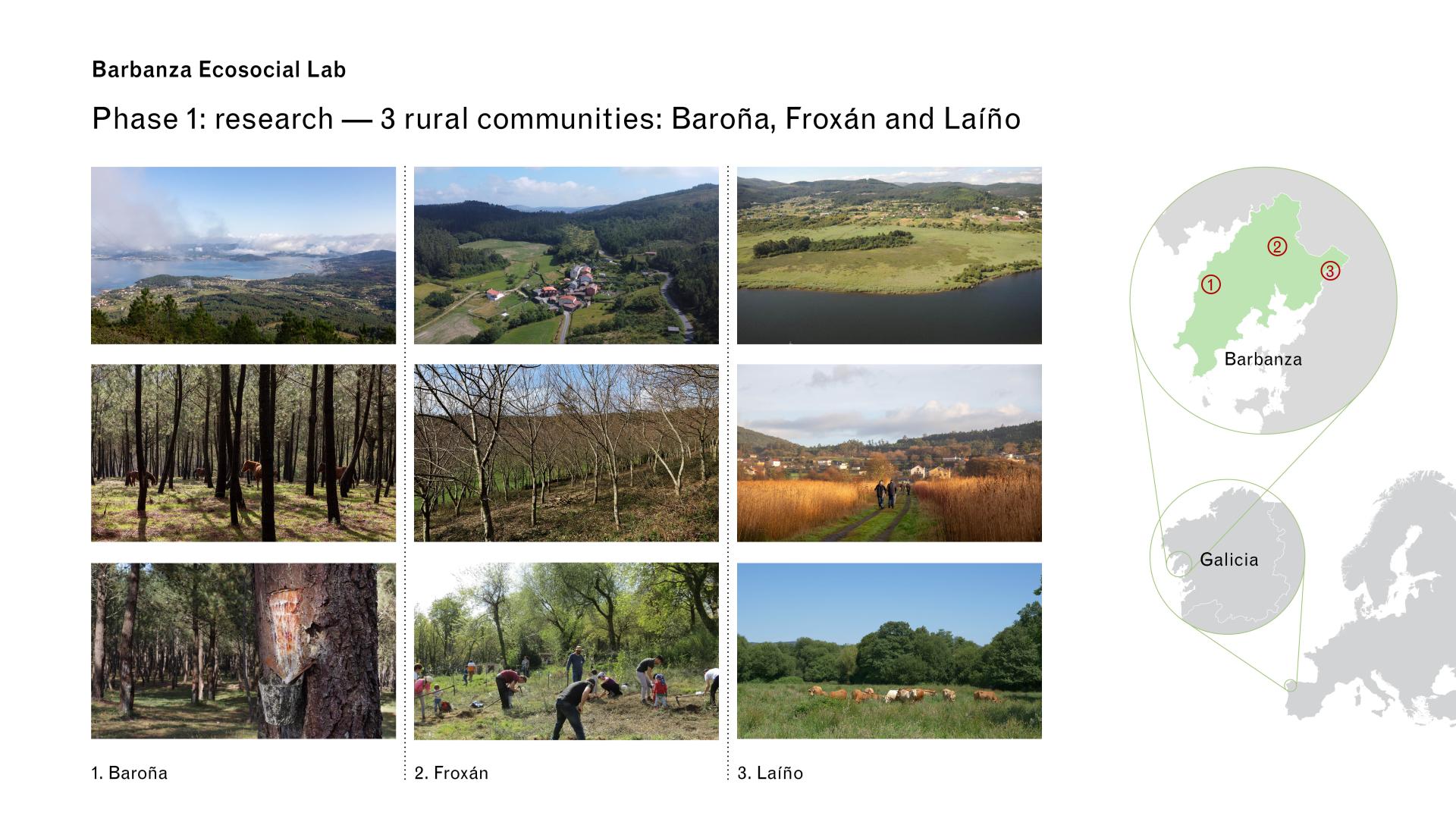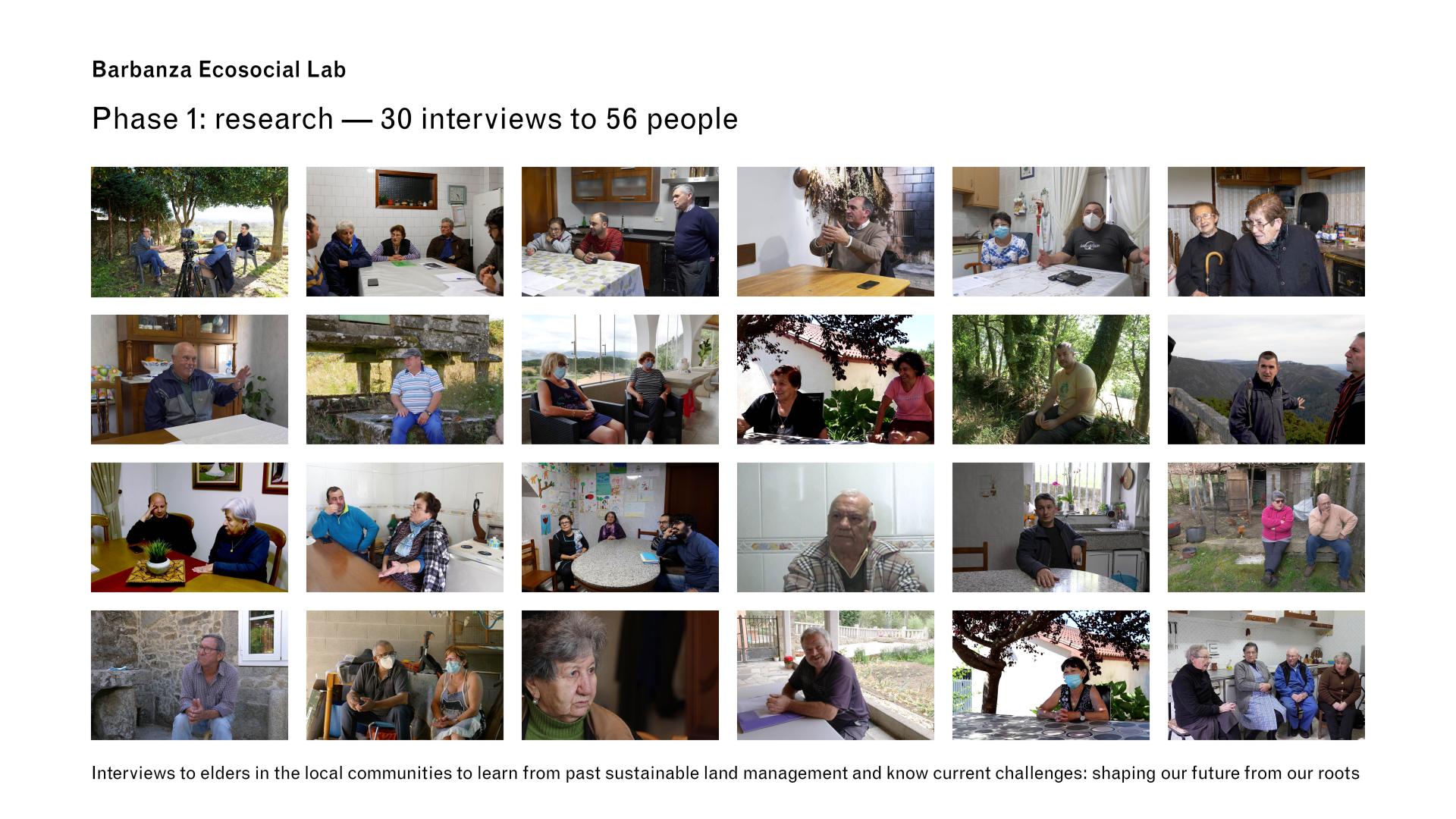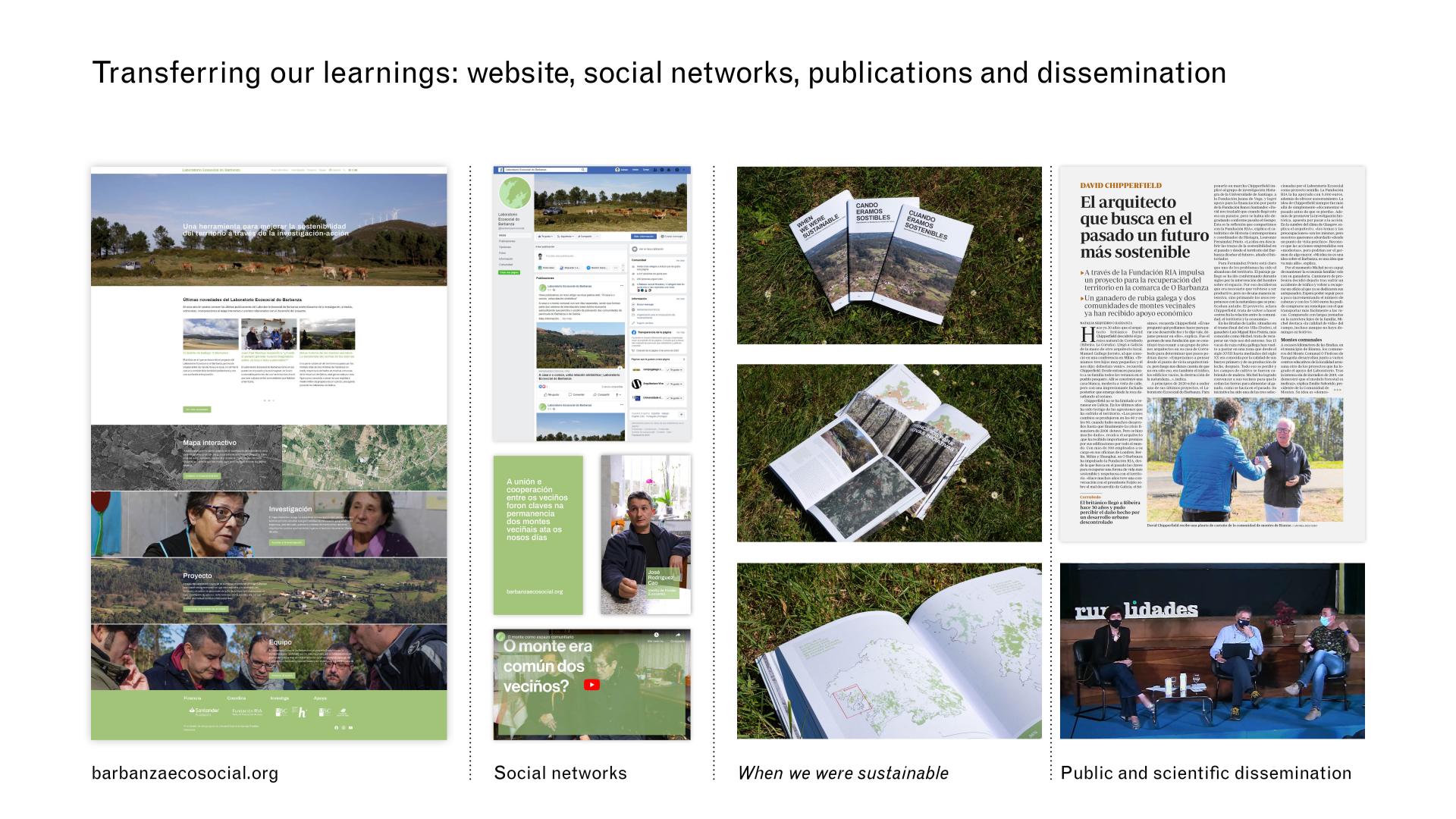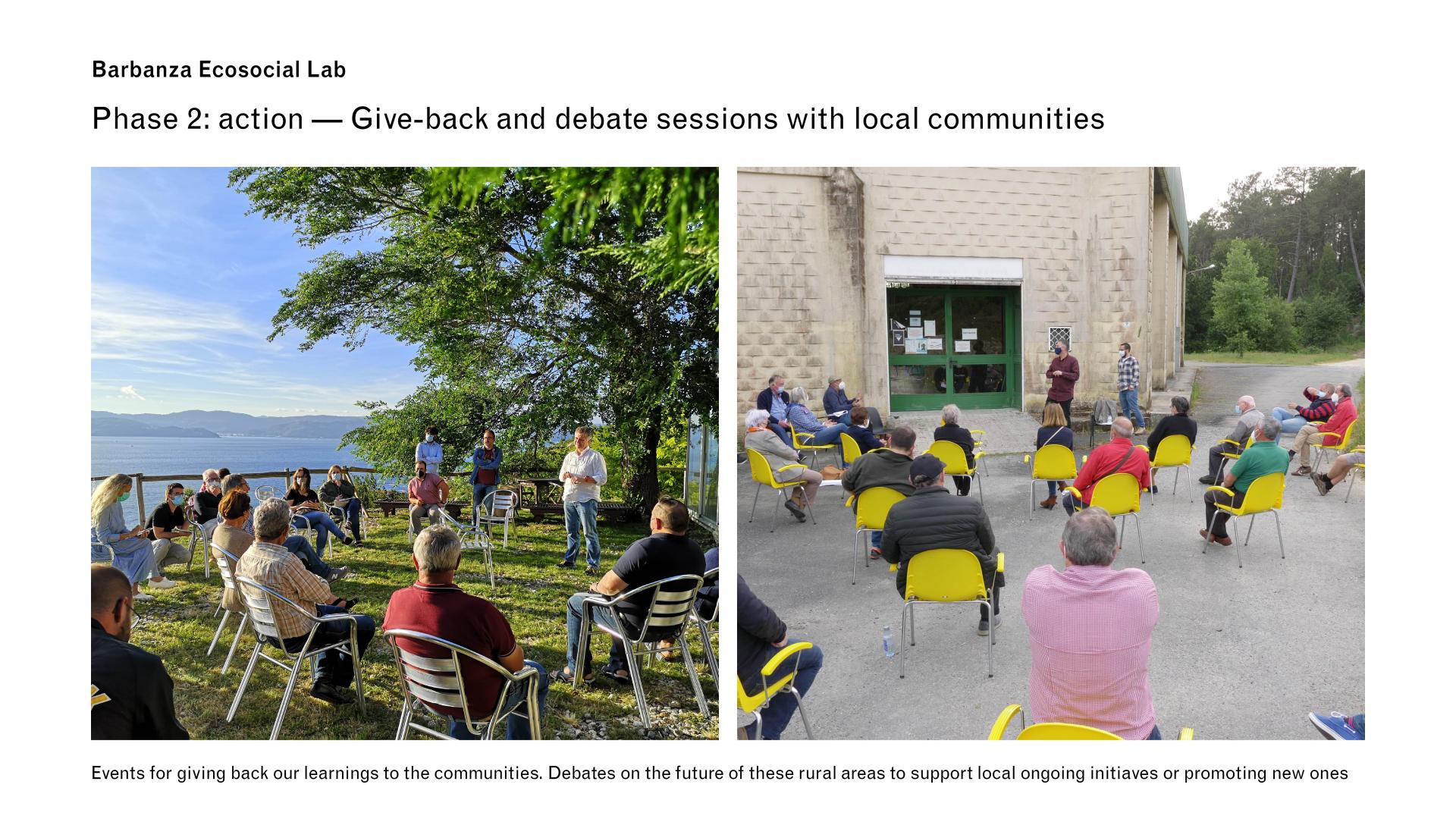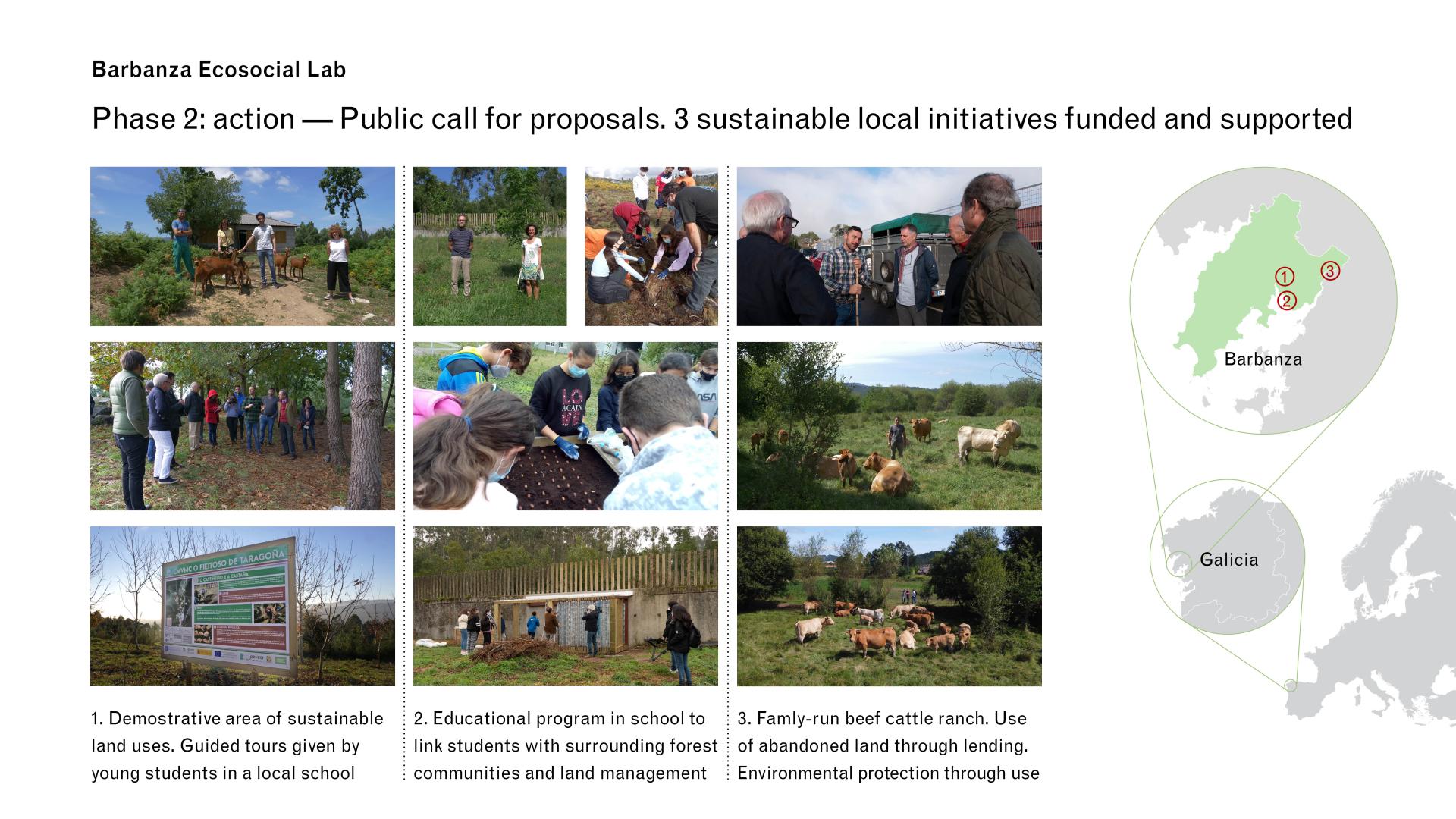Barbanza Ecosocial Lab
Basic information
Project Title
Full project title
Category
Project Description
Barbanza Ecosocial Lab is an action research project to support and amplify sustainable land management initiatives that are promoted by local communities so they can become inspiring examples to others. The collaboration between non-profit organisations, the university and locals, especially in communal managed areas, aimed to recover the links between the local knowledge of older generations and the younger ones, that the last decades of unsentitive development has broken.
Geographical Scope
Project Region
Urban or rural issues
Physical or other transformations
EU Programme or fund
Which funds
Description of the project
Summary
Barbanza Ecosocial Lab is an action research project to support and amplify sustainable land management initiatives that are promoted by local communities so they can become inspiring examples to others. This project is the result of a collaboration between Fundación RIA, Universidade de Santiago de Compostela, Fundación Banco Santander and the support to research of Fundación Juana de Vega . The collaboration between non-profit organisations, the university and locals, especially in communal managed areas, aimed to recover the links between the local knowledge of older generations and the younger ones, that the last decades of unsentitive development has broken.
The project, which focuses on the Barbanza peninsula in Galicia (Spain), has been developed in two phases: research and action.
In addition to documentary sources, the research was based on 30 interviews were conducted with more than 50 people from 3 communities in the region. This allowed us to learn about the forms of land management that have been carried out historically, the transformations that these territories have undergone over the last 70 years and the main challenges that the rural population currently faces in carrying out their activities.
The second phase started with the implementation of the lessons learned during the research through the announcement of an open call for the promotion of sustainable and innovative initiatives -called seed projects-. At the deadline for the submission of proposals, the Lab received 15 projects, which quality highlighted the existence of a great potential to boost the development of the rural areas of the county by the local community. The 3 selected projects received an endowment of €5.000 to recognise their work and promote their development and amplification.
The whole process and its results have been widely disseminated through the creation of a dedicated website barbanzaecosocial.org, social networks, the book “When we were sustainable" and press.
Key objectives for sustainability
The European territory has been extensively transformed over the centuries, adapting geographical and natural conditions to the needs of society. Landscape cannot be understood only in a contemplative way, as a consequence of natural evolution, but as a result of the symbiosis between humankind and nature: a productive landscape.
Especially in Galicia, every square metre of territory has been transformed for agricultural, livestock, forestry, shellfish production, etc., generating mixed productive systems in which human action has adapted the sources of resources in a sustainable way. Circularity can be found through silvopastoralism and the gathering of scrub, to be combined with livestock waste, which allowed the fertilisation of agricultural land; or also in intertidal areas, with the gathering of seaweed 'sargassum', which will allow the oxygenation of clam or cockle crops, and its use as a fertiliser for agricultural land.
The transmission of local knowledge optimised over centuries was interrupted by Franco's dictatorship and the forced forestation of the land, which broke the cycles and systems built up over centuries, favouring monocultures of pine or eucalyptus without active management.
The abandonment of human action does not produce a return to nature, it is not rewilding, but a chaotic disorder of species that drastically reduces biodiversity and ultimately leads to forest fires that seriously affect the agroforestry ecosystem, but also the marine ecosystem, although it does not harm people.
Recovering local knowledge, reconnecting young people with the territory, and recomposing cycles and agricultural ecosystems are the objectives that the Barbanza Ecosocial Lab seeks through the promotion and recognition of inspiring and exemplary local initiatives.
Key objectives for aesthetics and quality
Barbanza Ecosocial Lab is an action research project. Aesthetical concerns have been presents at several stages of the process:
- The process of collecting local knowledge through the elders, the living memory of the place, its filming and archiving.
- Making the research accessible to all audiences is a premise that has characterised all the project’s actions. Public presentations, the use of social networks, or the visualisation of concepts through maps, diagrams and illustrations, have allowed this accessibility, as exemplified in the publication “When we were sustainable”. The graphic edition of its contents in order to elaborate and edit visual information accessible to all audiences: between scientific literature and the clarity of educational and informative texts.
- A series of seed projects, with the aim of establishing examples in the territory to inspire a more sustainable model and demonstrate that theory can be put into practice.
- The environmental quality and scenic beauty of the mosaics of crops and agroforestry activities, in combination with natural areas, wetlands or riparian forests. High biodiversity of associated fauna and flora.
Key objectives for inclusion
The Ecosocial Lab has been conceived as a hybrid space that combines research and action, placing the local community at the centre of all activities. In this cooperative process, the identification of conflicts and the design of possible solutions has been carried out first-hand with the inhabitants themselves, adding value to their experience and innovative solutions to global challenges, both economic and social, as well as environmental.
Barbanza Ecosocial Lab is a transgenerational project. Importance is given to the voice of an elder as it can transmit the knowledge of a past productive model. On the other hand, value is given to the voice of a child, as it constitutes the relay of those who will manage, use and protect the resources of local ecosystems in the future. Agro-ecosystems span the life cycles of several generations.
At a time when raw materials, energy, food, etc. are becoming an increasingly important burden on household economies, the concept of resilience makes more and more sense. Preventing forest fires through forestry while providing fuelwood for heating homes. Promote mixed systems by favouring home-based agriculture, reducing livestock waste through the generation of organic manures. Promote local markets and traditional delivery networks adapted to current technologies. These are activities in which the role of local communities is crucial.
Results in relation to category
In just two years, and despite the extraordinary situation of COVID-19 pandemic, Barbanza Ecosocial Lab project has:
- Learned from the past of local communities to identify the keys to a more sustainable future, which has resulted in a printed and digital publication that is generating great interest both from the scientific community and the general public.
- Set a reference platform for local agents interested in rural entrepreneurship, environmental protection and community involvement in land stewardship, which has been attended by a diversity of individuals and associations with projects of great interest.
- Created a digital communication tool to share the knowledge generated, but with the potential to expand its impact with consultation and dissemination tools, such as the interactive map available to landowners and local entities.
- Supported a series of seed projects driven by local communities, which are transcending their own environments and creating links and potential collaborations with others.
- Reinforced local initiatives to promote active land conservation through sustainable management of natural resources.
- Highlighted the importance of providing younger generations with a better understanding of their surrounding environment and actively involve them in improving it.
- Valued local knowledge with regards to land management
- Generated interest in public administrations, both local and regional, to collaborate in projects of environmental regeneration, rural entrepreneurship, sustainable land management, pilot experiences, etc. through co-financing and the provision of technical resources.
How Citizens benefit
This project could not have been possible if it had been developed without counting on the local communities which became the core of all activities.
The interviews conducted with members of the local communities were central to research in order to delve deeper into former farming practices, community values or labour and market relations. Most of the people interviewed were between 60 and 90 years old and therefore witnessed the processes of deagrarianisation of the rural areas they inhabited. They are therefore people who constitute the living memory of these places. All the interviews were recorded on video, which meant that they could be consulted later during the course of the research. This also made it possible for fragments and images of the interviews to be used in public communication actions of the project, on barbanzaecosocial.org, on social networks or attached to press releases.
A total of 30 interviews were conducted with 56 people from the communities of Baroña, Froxán and Laíño, from which 40 hours of video footage were extracted. Audio segments of these interviews will be made public also through University of Santiago oral history archive Terra e Memoria.
On the other hand, one of the requirements set for the applicants for the call for seed projects was that they or their initiatives had to be rooted in the territory.
In this cooperative process, the identification of conflicts and the design of possible solutions has been carried out first-hand with the inhabitants themselves, adding value to their experience and innovative solutions to global challenges, both economic and social, as well as environmental.
Physical or other transformations
Innovative character
In recent years, in Europe, the concept of the Living Lab has been defined as a test bed and experimentation environment where users can co-create innovations adapted to the needs of society and the territory. Living Labs offer spaces where prototypes are developed and tested with the aim of improving citizen well-being, involving both public and private collectives.
The experience accumulated since the beginning of the Barbanza Ecosocial Lab places us very close to this model, which the European Commission characterises as Public-Private-People Partnerships (PPPP) for user-driven open innovation and which are based on four main activities: co-creation, exploration, experimentation, and evaluation. This model has been implemented through the collaboration between non-profit organisations, the university and local communities, especially in communal managed areas, who have played a central role bothe in the research and the action phases of the project.
Learning transferred to other parties
Two central pillars of the Barbanza Ecosocial Lab are to guarantee accessibility to the knowledge generated in the research phase and to amplify the public communication of the seed projects so that they can serve as inspiration for other people and entities.
The website barbanzaecosocial.org, which is available in Galician, Spanish and English, is the digital window of the Laboratorio Ecosocial do Barbanza and is addressed to a wide range of visitors and readers:
- First of all, people close to the study areas, who will recognise many of the practices mentioned and which were carried out in their environment. The seed projects selected through a public call for proposals can become examples for other individuals to replicate.
- The content is also aimed at the scientific community, which we hope will find in the Barbanza Ecosocial Lab a repository of information under which to develop future research and projects.
- Finally, to public administrations and private entities related to territorial planning, to provide them with keys that will enable them to promote strategies and actions in which sustainability is a premise.
This website is complemented with other communication activities:
- The book "When we were sustainable. Learning from Barbanza: shaping our future from our roots", downloadable free of charge. A first print run of 270 copies has been distributed to local and regional administrations, the scientific community, associations and foundations related to environmental conservation, local agents and members of collaborating forest communities.
- Barbanza Ecosocial Lab has channels on social networks, facebook and instagram to disseminate the contents of barbanzaecosocial.org, news related to the project, announcements of public events, etc.
- Participation in scientific symposiums
- Give-back sessions with the local community
- Submission of press releases of the project to local media

